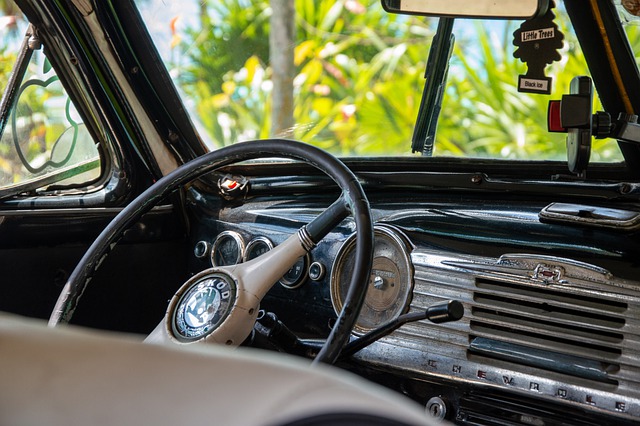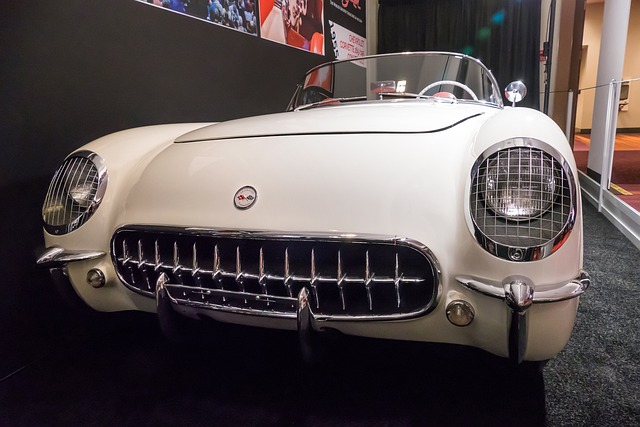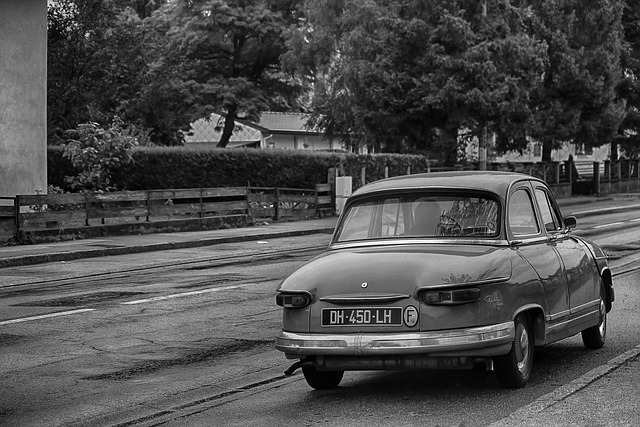There are several things that could be causing this, including engine, fuel system, ignition, and transmission problems. If your car is juddering while you’re driving, it’s a sign that something might not be right.
So, consult and check with a professional mechanic to identify and fix the problem for safe and smooth driving. Let’s explore it in more detail below:
Why is my car juddering when driving
There are some reasons why your car is juddering while driving:
- Transmission Problems: Slipping gears, worn clutch (in manual), or issues with automatic transmission can lead to jerking.
- Engine Issues: Misfiring, rough idle, or poor fuel delivery can cause juddering.
- Fuel Quality: Contaminated or low-quality fuel affects engine performance.
- Ignition System: Faulty spark plugs, ignition coils, or timing can cause juddering.
- Drivetrain Problems: Worn driveshafts, CV joints, or differential issues can result in vibrations.
- Tire and Wheel Imbalances: Unbalanced or worn tires, as well as alignment problems, lead to vibrations.
- Exhaust or Emission Problems: Issues with the exhaust system or emissions components can lead to uneven performance.
- Brake Issues: Damaged or unevenly worn brakes can cause the car to judder.
- Suspension Trouble: Worn-out components affect stability and smoothness.
How can I get my car to stop juddering?
Here are some ways you can stop the car from juddering:
- Use reputable fuel sources to prevent fuel-related issues.
- Replace worn-out spark plugs for proper ignition.
- Maintain appropriate transmission fluid levels and cleanliness.
- Stick to your car’s maintenance schedule for tune-ups, oil changes, and filter replacements.
- Ensure brakes are in good condition, with even wear on brake pads.
- Address issues with spark plugs, ignition coils, and timing.
- Inspect driveshafts, CV joints, and differential for damage.
- Keep tires balanced, aligned, and properly inflated.
- If juddering persists, consult a mechanic to diagnose and fix the problem.
- Regularly inspect suspension components for wear and tear.
Moreover, by taking these steps, you can reduce or eliminate juddering, ensuring a smoother and safer driving experience.

Why does my car juddering when pulling away?
Car juddering when pulling away can be due to several factors:
- Automatic transmissions with gear slipping or delayed shifts may result in juddering.
- Cylinders misfiring during acceleration can cause the car to jerk.
- A worn clutch or improper engagement during takeoff can lead to juddering.
- Faulty spark plugs, ignition coils, or timing disruptions can hinder proper combustion.
- Operating the engine at extremely low RPM can contribute to juddering during pull-away.
- Insufficient fuel supply or incorrect mixture affects a smooth pull-away.
- Glitches in the car’s computer can cause juddering.
- Automatic transmission problems, such as torque converter issues, can result in juddering.
- Delays in throttle response can lead to uneven acceleration.
Moreover, addressing these factors promptly through professional inspection and repair can help eliminate juddering when pulling away.
Why does my car judder as I accelerate?
Car juddering during acceleration can stem from various factors:
- A failing fuel pump leads to inconsistent fuel pressure, resulting in jerky acceleration.
- If the catalytic converter is blocked or damaged, it disrupts exhaust flow, causing juddering.
- When fuel injectors are clogged, they can’t deliver fuel properly, causing uneven acceleration.
- Worn or damaged spark plugs cause incomplete combustion, resulting in juddering while accelerating.
- The presence of water or moisture in fuel or engine components disrupts combustion, causing jerking.
- A malfunctioning MAF sensor creates an incorrect air-fuel mixture, leading to acceleration issues.
Moreover, you can consult an Expert diagnosis to stop the juddering issue during acceleration.
Why judders my car when it is idle?
Car juddering, when it’s idle, can cause some various factors:
- The build-up of dirt and grime can contribute to the car stuttering at idle.
- A filter clogged with dirt limits airflow, impacting smooth idling.
- Damaged spark plugs can disrupt combustion, leading to idle juddering.
- Fuel or oxygen scarcity due to clogs can result in the car juddering and shaking at idle.
- Debris in the fuel injection system can hinder proper fuel delivery, causing juddering.
- Clogged systems can reduce oxygen supply, affecting combustion and causing juddering.

Why does my car judder when braking?
Car juddering while braking can be attributed to various factors:
- Thin or unevenly worn brake pads may cause inconsistent contact with the rotors, resulting in juddering.
- Sticking or unevenly applying brake calipers can create uneven braking force and juddering.
- Unevenly worn or overheated brake rotors can lead to vibrations and juddering.
- Worn-out wheel bearings can lead to vibrations felt when braking.
- Malfunctions in the Anti-lock Braking System can lead to irregular braking and juddering.
- Damaged or worn suspension components can transmit brake vibrations, causing juddering.
- Corrosion or debris on the rotor surface can disrupt smooth braking, leading to juddering.
- Air in the brake lines or fluid leaks can affect brake force distribution and cause juddering.
- Unbalanced or misaligned tires can contribute to vibrations during braking.
Additionally, it’s recommended to have a professional mechanic inspect to resolve this issue. Which will identify and correct the specific cause of your braking system failure.
Why does my car stuttering when I accelerate?
Experiencing stuttering when you accelerate can stem from various factors:
- A failing pump causes inconsistent pressure, resulting in uneven acceleration.
- A damaged converter disrupts exhaust flow, causing juddering during acceleration.
- Clogged injectors disrupt fuel spray, leading to juddering during acceleration.
- Water or moisture in fuel or engine components disrupt combustion, causing jerking.
- A malfunctioning MAF sensor creates an incorrect air-fuel mixture, leading to juddering.
- Worn or damaged spark plugs cause incomplete combustion, resulting in juddering during acceleration.
Additionally, by addressing these factors through proper maintenance and repair, you can eliminate the issue of stuttering while accelerating.
Should I visit a garage if my car is juddering?
It’s a good idea to visit the garage if your car is juddering. They can rapidly figure out why it’s happening. A skilled mechanic can determine what’s causing the juddering and fix it. If you’re worried the garage might do too many tests or say things that aren’t true, you should know the possible reasons before you go.
Also, Ignoring the juddering could cause bigger problems, and your car might not work as well or be unsafe to drive.
Why is my car jerking when I press the gas?
If the spark plugs are worn out, your car jerks when you press the gas. These parts affect how your car runs. If this could be the issue, get a pro to check them and switch them if needed.
Can distorted car tyres cause juddering?
Yes, if your car tires are not in the right shape, they can make the car judder. When tires are not even or have bumps, they can shake and make the car feel bumpy when you drive. Ensuring your tires are lined up correctly can help stop this.
It is normal for a car to jerk?
If your car jerks when you accelerate, it’s a problem you shouldn’t ignore. Car jerking can lead to more issues if not fixed. Also, dirty fuel injectors are a common cause of jerky acceleration and should be checked.
Why does my car jerk at low rpm?
If your car jerks at low RPMs, it could be due to fuel delivery issues. A weak or failing fuel pump might not give enough fuel to the engine. If fuel injectors are clogged or not working right, the fuel might not mix well. Also, a dirty fuel filter can slow down fuel flow.
Are Electrical Problems Linked to Car Juddering?
Yes, electrical problems can indeed be linked to car juddering. Worn-out spark plugs or their electrical cables are common reasons for cars juddering. A bad spark plug makes the engine misfire, causing your car to jerk when you speed up.
Final Verdict
When driving, don’t ignore juddering in your vehicle. Juddering indicates that something is wrong, which can be caused by problems with the engine, fuel system, ignition, or other components. So, to avoid these problems and ensure safety, you should get your car checked by a mechanic.
Their expertise can fix the exact cause of the juddering and allow for necessary repairs. Addressing the problem promptly not only leads to a smoother driving experience but also prevents potential hazards on the road.

